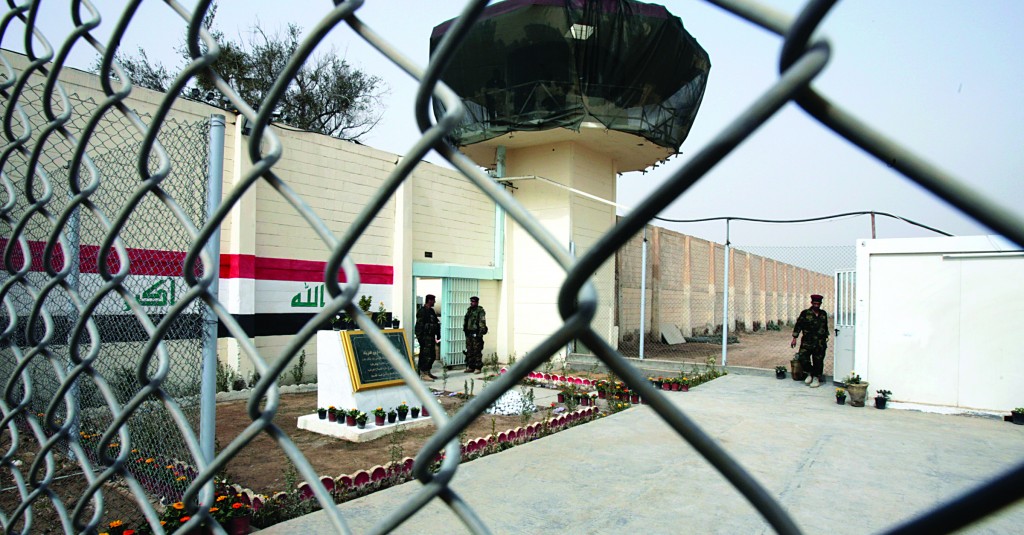Al-Qaida Claims Deadly Prison Raids in Iraq
 Al-Qaida’s branch in Iraq claimed responsibility Tuesday for audacious raids on two high-security prisons on the outskirts of Baghdad this week that killed dozens and set free hundreds of inmates, including some of its followers.
Al-Qaida’s branch in Iraq claimed responsibility Tuesday for audacious raids on two high-security prisons on the outskirts of Baghdad this week that killed dozens and set free hundreds of inmates, including some of its followers.
The statement from the Islamic State of Iraq and the Levant, the al-Qaida affiliate in Iraq, was posted on an online jihadist forum. It said months of planning went into the highly coordinated assaults on the prisons in Abu Ghraib and Taji that began late Sunday.
The attacks, among the most stunning in Iraq since a surge in violence began in April, have drawn sharp criticism from opposition lawmakers and ordinary Iraqis over government efforts to keep the country safe. The spike in bloodshed is intensifying fears of a return to the widespread sectarian killing that pushed the country to the brink of civil war after the 2003 U.S.-led invasion.
In its statement, al-Qaida in Iraq said the prison operation involved 12 car bombs, military-style barrages of rockets and mortar shells, suicide bombers and help from prisoners who had managed to obtain weapons on the inside.
Iraqi officials have said at least 25 members of the Iraqi security forces were killed in the attacks, along with at least 21 prisoners and 10 terrorists.
Al-Qaida boasted that its men killed more than 120 government forces, and claimed that on its side, only the suicide bombers died in clashes that raged for hours.

Frank Finver, a spokesman for the U.S. Embassy in Baghdad, said the U.S. is “deeply concerned” by the attacks and the overall levels of violence in Iraq.
He said the U.S. is in contact with the government of Iraq to help improve its ability to weaken or defeat al-Qaida inside Iraq, but he gave no specific details on counter-terrorism cooperation.
Iraq’s central government has not provided a clear account of what happened or said how many prisoners escaped Sunday night.
The Interior Ministry has said several prisoners broke out from Abu Ghraib, the infamous prison in Baghdad’s western suburbs that was the site of well-publicized prisoner abuse at the hands of the U.S. military following the 2003 invasion.
But several Iraqi officials, including members of parliament’s security and defense committee, have said more than 500 inmates escaped. Both prisons house thousands of inmates, including convicted al-Qaida terrorists, though it appears no one broke out of the Taji prison.
Al-Qaida said in its statement that the attack freed hundreds of detainees, including more than 500 mujahedeen, or Muslim warriors for the faith .
The authenticity of the statement could not be independently confirmed. It was posted on a website commonly used by jihadists and its style was consistent with earlier al-Qaida statements.
The prison break could help bolster al-Qaida’s ranks and give them a propaganda boost.
“Al-Qaida needs as much resources as it can get, including manpower,” said Paul Floyd, who served several tours in Iraq with the U.S. Army and is now a military analyst at global intelligence company Stratfor. “The larger the operation, the more successful it is, the more likely they are to claim it.”
In the statement, al-Qaida also claimed responsibility for other unspecified attacks over the past four months in response to a heavy-handed crackdown by security forces on a Sunni protest camp in the northern town of Hawija on April 23.
The Hawija raid killed 44 civilians and one member of the security forces, according to estimates by the United Nations. It followed months of rallies by Iraq’s minority Sunnis against the Shiite-led government over what they contend is second-class treatment and the unfair use of tough anti-terrorism measures against their sect.
Violence in Iraq has spiked to the highest level in half a decade in the wake of the Hawija crackdown. More than 3,000 people have been killed since the start of April, including more than 500 since the start of July.
Iraqi security forces have struggled to quell the violence, angering many Iraqis. The prison attacks have only increased the sense of insecurity.
The bloodshed continued into Tuesday.
A bomb exploded at night outside a Sunni mosque in Kirkuk, killing seven and wounding 22, police Col. Taha Salaheddin said. A car bomb later wounded two near another mosque in the oil-rich city, 290 kilometers (180 miles) north of Baghdad, he added.
Another bomb exploded near a Sunni mosque in Baghdad’s southern Dora neighborhood, killing four and wounding 12, said police and hospital officials.
Insurgents earlier bombed a local government building in the northern village of al-Rashad. They kidnapped two anti-al-Qaida Sunni militiamen who were guarding the building and later shot them dead, said al-Rashad mayor Louis al-Fandi.
Police also found the bodies of four off-duty policemen on a road about 30 kilometers (20 miles) north of the city of Mosul.
In Mosul itself, gunmen in a speeding car shot dead two other off-duty policemen as they were walking in a street, police said.
This article appeared in print on page 8 of edition of Hamodia.
To Read The Full Story
Are you already a subscriber?
Click "Sign In" to log in!

Become a Web Subscriber
Click “Subscribe” below to begin the process of becoming a new subscriber.

Become a Print + Web Subscriber
Click “Subscribe” below to begin the process of becoming a new subscriber.

Renew Print + Web Subscription
Click “Renew Subscription” below to begin the process of renewing your subscription.








